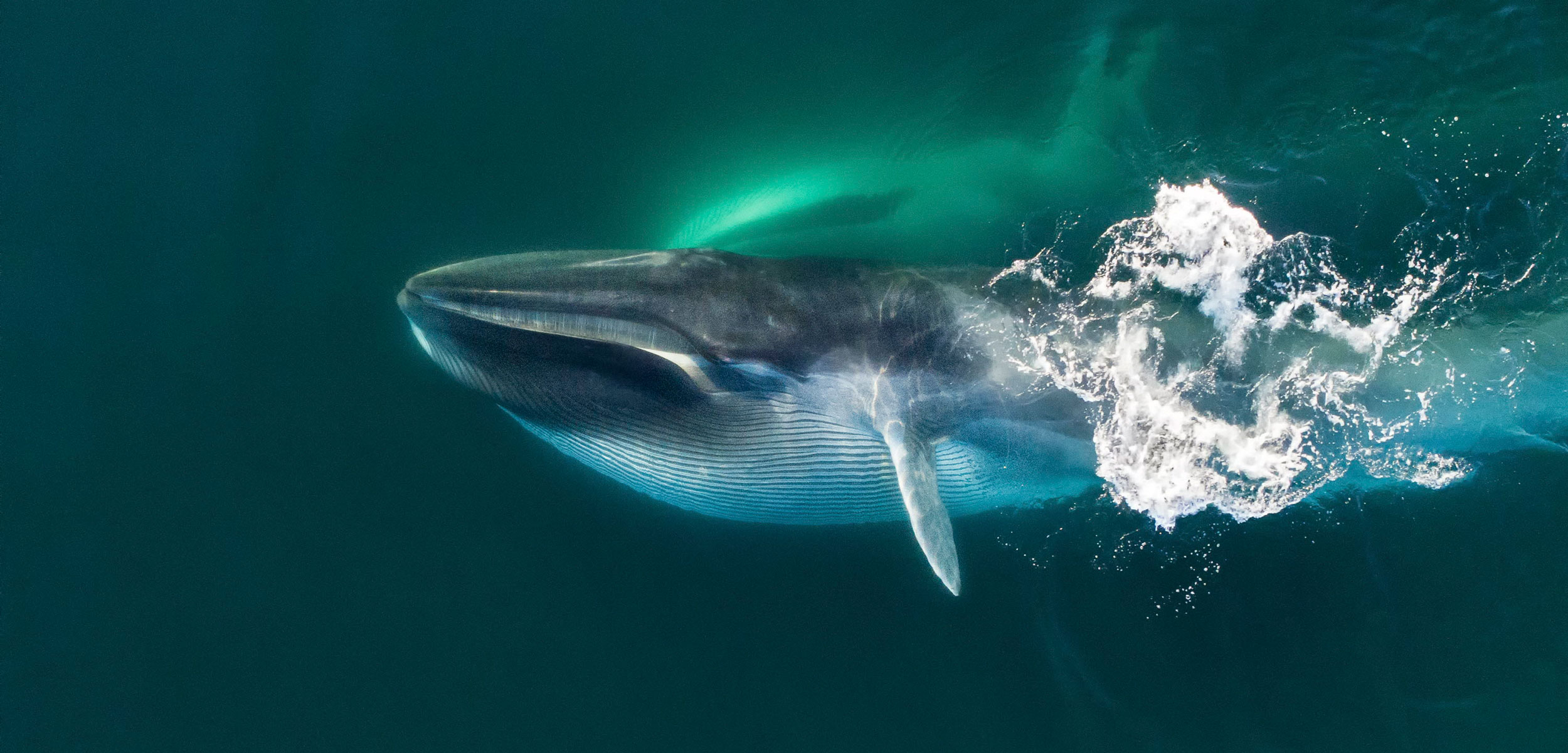Elsa Cabrera (Cetacean Conservation Center) and Juan Carlos Cárdenas (Centro Ecoceanos)
There is a rumor in the air. One that suggests that Japan, the whaling country par excellence, could rejoin the International Whaling Commission (IWC) during the next few years. In December 2018, the asian nation left this international body, in charge of the global management and conservation of cetaceans, after failing in its continuous attempts to eliminate the global moratorium on commercial whaling.
Since then, the japanese whaling industry and associated political elite have continued the annual slaughter of dozens of sei whales, and hundreds of Bryde’s and minke whales in waters under their jurisdiction. Despite international opposition, they argue that it is part of their cultural tradition. And to prove it, last June they decided to add fin whales to the list of hunted species.
On May 9, Japan’s Fisheries Agency announced that it was considering expanding its whaling operations to include fin whales, the second largest after the blue whale and classified as Vulnerable by the International Union for Conservation of Nature (IUCN).
To save face and try to mitigate the opposition of the global community, the Japanese authorities initiated a brief and superficial public consultation process that culminated in the approval of an annual quota of 59 fin whales just one month later. This figure lacks the backing of the IWC’s scientific committee and ignores the standards set by the IWC to avoid negative impacts on the affected population.
According to the japanese authorities, the measure is justified because whales are an important food resource that should be used sustainably, like any other marine resource, based on scientific evidence, to maintain Japan’s traditional culture and to promote the whaling industry.
From a historical point of view, Japanese whaling culture is only associated with four coastal communities. Mass consumption of whale meat occurred only in the middle of the last century after the end of World War II. The U.S. occupation forces created an industry based on whaling to quickly and affordably provide a source of animal protein to the weakened Japanese people. As a result, its consumption is associated more with one of the darkest periods in the country’s history than with age-old culinary traditions. Gradually, whale products were rapidly replaced by other animal protein, decreasing from more than 230,000 annual tons in 1962 to one or two thousand tons per year in recent years.
As a member of the IWC, Japan’s whaling policy focused until 2018 on promoting the consumption of whale meat as an element that is supposedly fundamental to ensure food security.
But whales are not just any other marine resource. Over the last decade, growing scientific evidence has shown that the greatest value of these marine mammals is related to the contributions they provide to the ecosystem alive. Among the benefits provided to the functioning of the ecosystem are the ability of their bodies to sequester significant tons of carbon dioxide (CO2) throughout their lives, which is then trapped for centuries, and even millennia, when they die naturally and fall to the seafloor. This makes them important allies in combating climate change.
In addition, the nutrients found in whale feces have been shown to be critical for the growth of marine microalgae known as phytoplankton. These not only form the basis of the food web on which all marine life depends, but are also responsible for producing about 50 percent of the oxygen on the planet. In addition, the “biological pumps” they generate as they dive and rise to the surface mobilize nutrients from the depths, stimulating marine life on multiple levels. Contrary to what Japan argues, science shows that whaling could seriously affect fisheries and jeopardize food security.
Thus, all indications are that Japan’s motivations for continuing and expanding commercial whaling outside the IWC have nothing to do with its cultural traditions or scientific rationale. They are just political and economic.
For Japan, access to marine resources is strategic. The implementation of measures and regulations to ensure their conservation is therefore perceived as a threat. Recent international pressure to increase regulations on the catch of endangered species such as bluefin tuna may have prompted a reaction to expand the list of whale species hunted. Japan consumes about 80 percent of all bluefin tuna catches in the Atlantic and Pacific, so the implementation of new restrictions linked to marine conservation could affect both consumers and the economic interests of the Japanese fishing industry.
The inclusion of fin whaling is not only a controversial and provocative move that seeks to undermine the existing moratorium. It is also a clear signal that for the japanese government whaling is a symbolic and strategic issue in its new phase of military and geopolitical expansion in the Pacific. It is also a message that it will not accept pressure from the international community or civil society, as it would jeopardize the interests of its entire fishing industry, including the tuna fishery.
To revitalize the whaling industry, the Japanese government actively promotes its consumption, distributing rations in primary and secondary schools, and participating in local food festivals. In 2023, the whaling company Kyodo Senpaku installed vending machines for whale products in Tokyo and other parts of the country. And this year the same company completed construction of a new mother whaling vessel, Kangei Maru.
At a cost of nearly $50 million U.S. dollars and weighing over 9,300 tons, the vessel can travel nearly 13,000 kilometers autonomously, process large whale species up to 70 tons (such as fin whales), store up to 2,000 tons of meat, and remain at sea for long periods of time. A small fraction of the ship’s cost (4%) was financed by taxpayers of the city of Shimonoseki, the center of Japan’s whaling industry. The remainder came from loans that Kyodo Senpaku will have to repay with interest to its creditors over the next decades.
The investment made and characteristics of the Kangei Maru vessel suggest that Japan’s real interest is to resume its commercial whaling operations in international waters. A report from the Japan Fisheries Agency regarding the situation surrounding whaling reveals that Japan is developing a program on abundance and stock structure studies in Antarctica (JASS-A) with the general vision of “continuing research aimed at the use of the whale resource in Antarctica.”
The monitoring area includes part of the Southern Ocean whale sanctuary created by the IWC in 1994 and contemplates an eight-year study period (from 2019/2020 to 2026/2027). It is being implemented by the Institute of Cetacean Research (ICR), the body that ran Japan’s so-called “scientific” whaling program in Antarctica until it was ruled illegal by the International Court of Justice in 2014. And the vessel used is the Yoshin Maru, belonging to Kyodo Senpaku company, the same one that built the Kangei Maru.
Since the implementation of the global moratorium on commercial whaling in 1986, the government of Japan was characterized as a member of the IWC for aggressively pushing the so-called harpoon diplomacy that included the continuous obstruction of conservation proposals, the breakdown of decision-making processes by buying votes from some Caribbean and African countries, and the conduction for more than 30 years of illegal whaling operations in the Southern Ocean whale sanctuary.
Following its departure from the IWC, the Asian nation has redoubled its efforts to exert pressure on this international body. It has continued and expanded commercial whaling in its jurisdictional waters and has launched a whaling vessel which, due to its capacity and economic investment, will inevitably require expanding the catch areas into international waters, as well as significantly increasing the number of whales hunted.
And so, we return to the rumor that Japan could rejoin the IWC. Should it pursue this course of action, it is highly likely that it will follow a similar path to Iceland in 2003, seeking a reservation to the moratorium to continue hunting whales for commercial gain, possibly even in international waters. The potential implication is profound – if, driven by political and/or economic considerations, IWC members concede to this controversial initiative orchestrated by the Japanese political, military, and business elite, they would bear direct responsibility for effectively dismantling a landmark conservation policy, which among others, has prevented – until now – the extinction of species that are vital to the health of the ocean.



